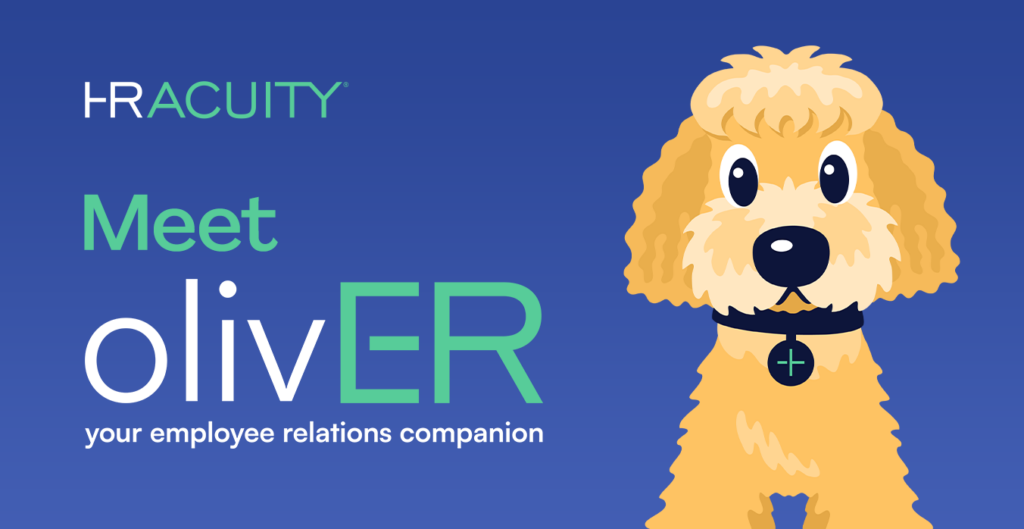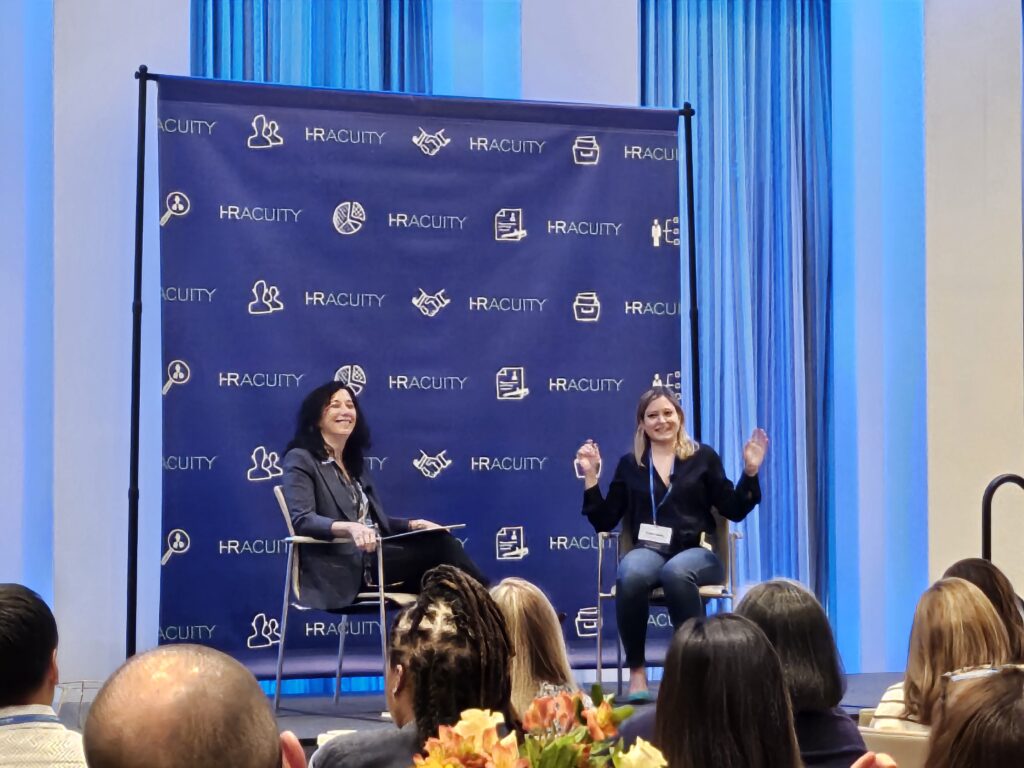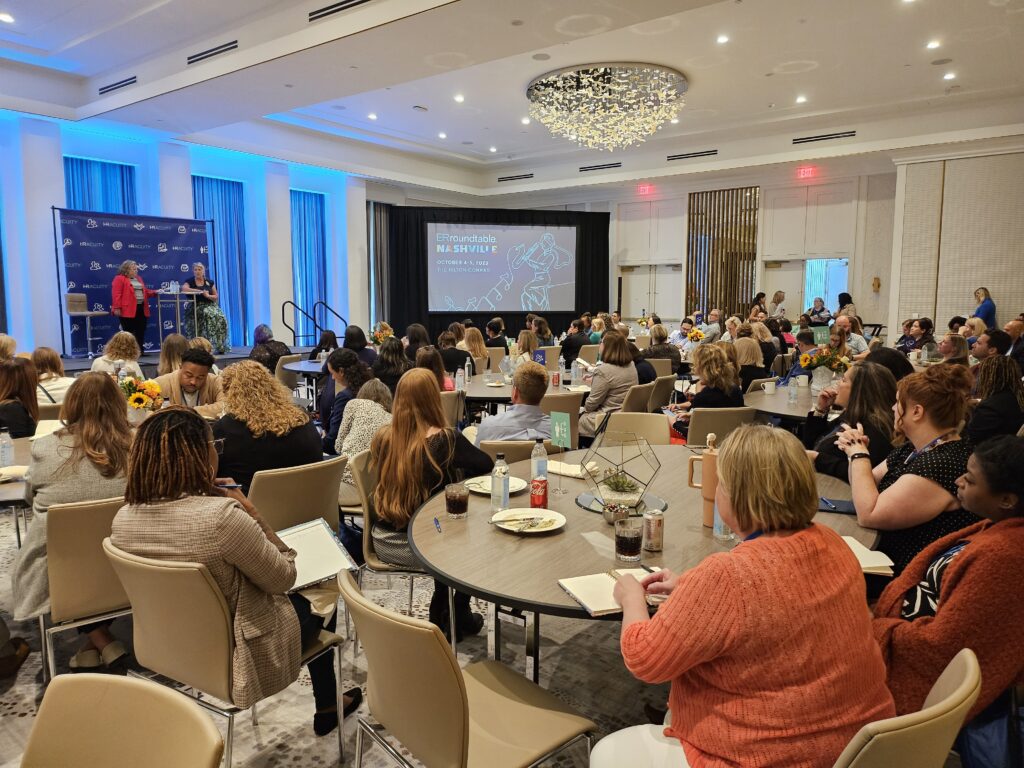Part 2 of an Interview with Nancy Altobello, Former Global Vice Chair of Talent, EY by HR Acuity CEO Deb Muller
Earlier this month, I had the privilege to talk to HR and leadership expert Nancy Altobello, former Global Vice Chair of Talent at consulting giant EY. We discussed all angles of the COVID-19 pandemic and what it will take for business and HR leaders to get through it, formulated around Nancy’s three-part framework: Resilience, Recovery and Reimagining.
You can read part 1 of our conversation here, where we discussed resilience and getting through the early phases of the pandemic.
Today, Nancy and I focus on the areas we’re all immersed in today – getting back
Here are some more lightly excerpts from our discussion. To hear our entire conversation, listen to the webinar replay.
Deb Muller:
What did we learn over the last few months? And how would we do things differently in the next crisis, which is going to look probably totally different?
Nancy Altobello:
Unfortunately, there will be other crises. We don’t know what they’re going to be, but it’s really important to sit back and learn. This was like an uber-crisis. So if you can learn from this one, it should cover any other crisis that could ever happen.
Get the right team together to understand:
What did we learn from this? What went well? How should we prepare differently? And I think IT has to be a huge part of that. Was IT prepared? Were the employees prepared to work remotely, including cybersecurity issues, which are an all-time high?
Did we track the right things all along? What other information should we have been collecting? What other information do we need now? What really was critical to our business, and what did we learn we can do without? I talked to a senior person yesterday who said, “I haven’t gone to any of these type meetings for the last month. I’m so much more productive and realized those meetings were kind of worthless.”
So I think it gives you an opportunity to evaluate. And then very, very, very importantly, I’m listing this last but not because it’s least important.
How did our people feel through this? Get their input, get their ideas, understand what healing is required for them. Get their ideas on how it felt to be on that side.
Deb:
So let’s talk a little bit about what I think is really most interesting, this concept of re-imagining. Disruption happened, but how are we going to take the opportunity to really define or re-imagine how we work? Every organization really has the opportunity now to take the time to re-imagine because normal now will never be what normal was on March 1st, 2020. I’d love to hear about how you think this can become an opportunity for leaders both in HR and across the business to really think differently.
Nancy:
Yes. I think that is the big opportunity here, to re-imagine your business and re-imagine what the business does and how it does it.
Now, many businesses are doing things differently. Food organizations are changing the way they deliver, technology companies and creating more products that help people work remotely. There’s so many changes that are going to occur.
Everybody is finding the more digital you are the better.
The more responsive you are to how change is happening the better.
And so thinking through that is really important.
Just have a brainstorm session with no rules:
- Looking at your business model, how do we get things done?
- Did we find some different ways of doing it, different ways of working, whether it’s working remotely or how teams interact with each other, different hours, more time to do self-development?
- Did we learn from that when people were able to invest in themselves?
Thinking about real estate needs, do you need more space because you have to have different distancing going forward, or do you need less space because people will either be working different hours or working remotely?
That’s a huge issue to think about. We also need to think about building the skills that our leaders need to manage through uncertainty. We will see magnificent stories through this and then we’ll hear other stories where things were just really poorly done. So thinking about helping our front leaders develop those skills for the next one will be important.
And then just having a sense of, how can our company be more adaptable? How can we be more innovative in the future? One of the things that I’ve observed, and I’m starting to read about, is I think there’s going to be different expectations around perfection and precision.
I think people are going to realize that good enough is good enough. I see on the morning shows a lot of these people are broadcasting from their homes. It’s not perfect. There’s dogs running through the room, their kids are holding up the whiteboards with their nose. It’s charming, and it’s interesting and it’s not perfect production stuff. So I think the idea of, “We don’t need to be so perfect. We don’t need to be so precise,” it’s more endearing, it’s more charming, and it gets the job done much easier.
That’s the kind of thinking you need to have. And this should be a releasing of all the rules so you can re-imagine. And then come back to your values. Did you live your values throughout this crisis? Do you have the right values? Is this an opportunity to do it differently because you see what the needs are that are different? And how has this crisis shifted our mindset about what’s really important?
That’s where I think this re-imagining can be so awesome and so uplifting and change the world forever.
Deb:
What a great session to empower your managers, and then have your managers empower their employees to say, “Look, what would you do differently? What did you learn? What did you need? What was important? What wasn’t important? And how can we take this and be better as employees, as team members?” But also get them to think about the business.
So as a business, are there ways that we can change our strategy because we’ve been listening to a different type of conversation?
Nancy:
Yes. It should be energizing, which will be nice to do after all this exhausting and overwhelming work.
Deb:
What about recovery and bringing people back to work?
Nancy:
The first two months are going to be really rocky. Your companies are going to be reworking contracts, and purchase orders and supply chain. By October, I think things are going to be humming.
Deb:
Nancy, any kind of closing words, words of wisdom?
Nancy:
Yes. This is a really tough time. I find myself very emotional several times during the day and I don’t have direct responsibility for others. So I can understand the overwhelming sense of everybody’s job right now.
I would say take care of yourselves, take care of your teams, recognize that this will take a while. So give yourself some time, give yourself some breaks, embrace this opportunity to lead.
Leaders, when you get this kind of opportunity to be front and center and to lead your company through this – this is maybe a once in a lifetime opportunity. So embrace that, but do it in a very positive way for your organization and take care of yourselves and just try to move the ball forward every day.
We thank Nancy for her words of wisdom and guidance as we all move through recovery and reimagine – and redesign – the future of work. As always, I encourage you all to reach out to me if you have questions or suggestions – I’m available at dmuller@hracuity.com. For COVID-19 questions and resources, visit the COVID Resources center.
We’re here for you,
Deb




